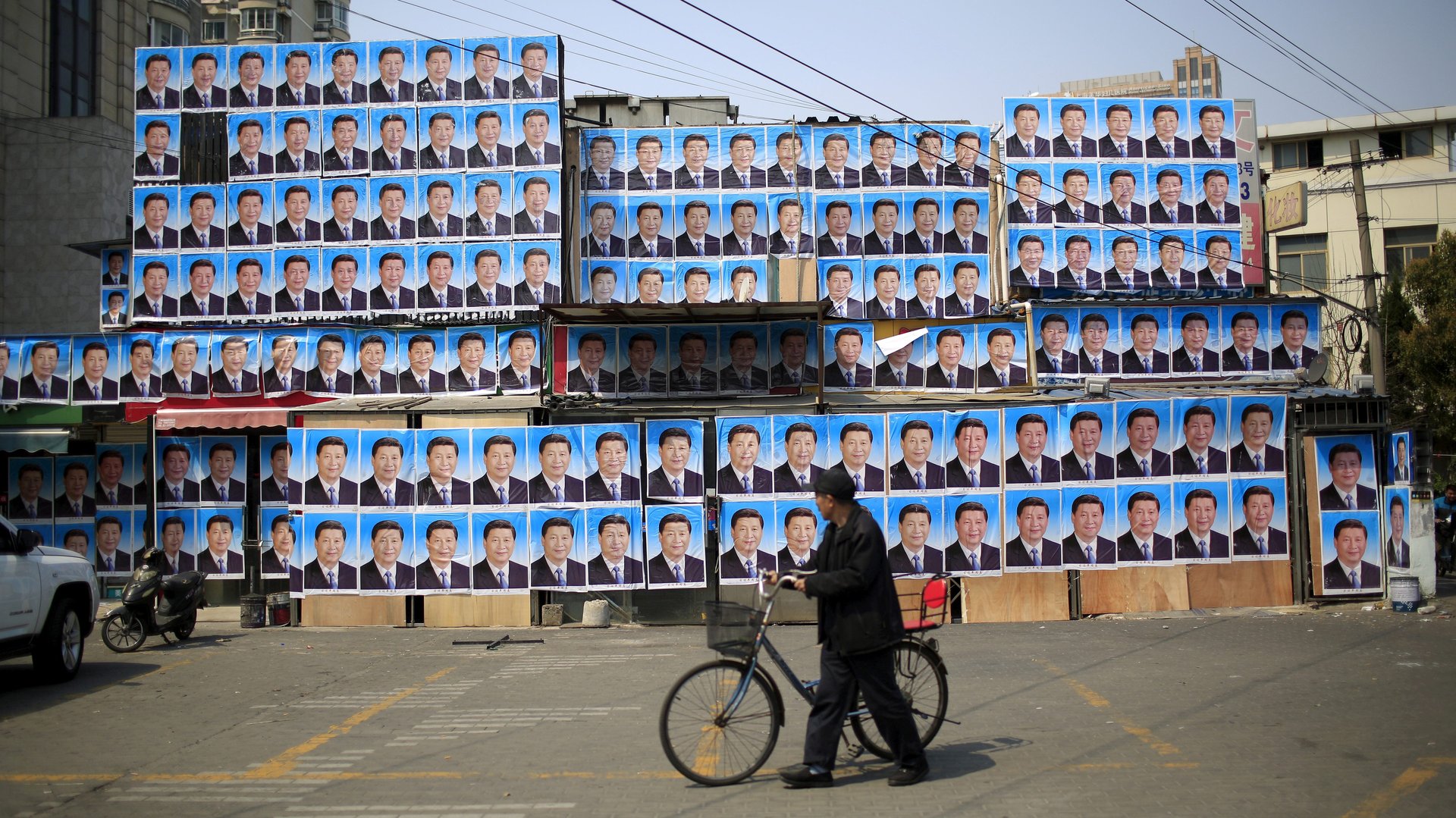Will China be as unequal as the US is by 2025?
The US isn’t often held up as a paragon social equality—and least of all by its strategic competitor, China.


The US isn’t often held up as a paragon social equality—and least of all by its strategic competitor, China.
But in a speech over the weekend, Cai Fang, a well-known economist and an adviser to China’s central bank, argued that China should aim to cut its Gini coefficient to 0.4 by 2025 in order to achieve common prosperity, the Communist Party’s term for more evenly spread affluence. That’s very close to US levels: 0.39, according to the latest available figure from the Organization for Economic Co-operation and Development (OECD).
“If it’s above 0.4, you can’t say it’s common prosperity,” said Cai, who made the comments in a speech (link in Chinese) at an annual forum hosted by the Chinese financial publication Caijing.
The Gini coefficient is a measure of income inequality. A Gini coefficient of zero means there is an equal distribution of income, whereas a number closer to one indicates greater inequality. The lower the Gini coefficient, the more equal the society is said to be. However, while it’s the most well-known measure of income inequality, the Gini coefficient is also deeply flawed.
China’s current Gini coefficient is 0.47; that number should be lowered to 0.4 by 2025 and get to 0.35 “or at least significantly below 0.4” by 2035, added Cai, who is a member of the monetary policy committee of the People’s Bank of China.
China’s Gini coefficient peaked in 2008 at 0.49, according to (link in Chinese) China’s National Bureau of Statistics. Getting that number below 0.4 will require “a lot of work,” Cai said, including various forms of distribution and redistribution and the construction of a “basic public service system covering the whole life cycle of all people, which can also be called a social welfare system.”
Chinese leader Xi Jinping is betting that he can cement his legacy by reducing income inequality while continuing to rev up the country’s economic growth engine. Only by doing so, according to Xi, would the country realize the “Chinese dream“—a phrase he first coined in 2012 to refer to aspirations of a great national rejuvenation.
Whether Xi’s common prosperity program—which the country’s super rich on notice and so far has entailed a crackdown on everything from tech giants to luxury investors and online influencers—will achieve its stated aim of a bigger and more equally shared pie for all is up for debate. One critic, for example, argues it’s just “a giant pork barrel for Xi supporters.”